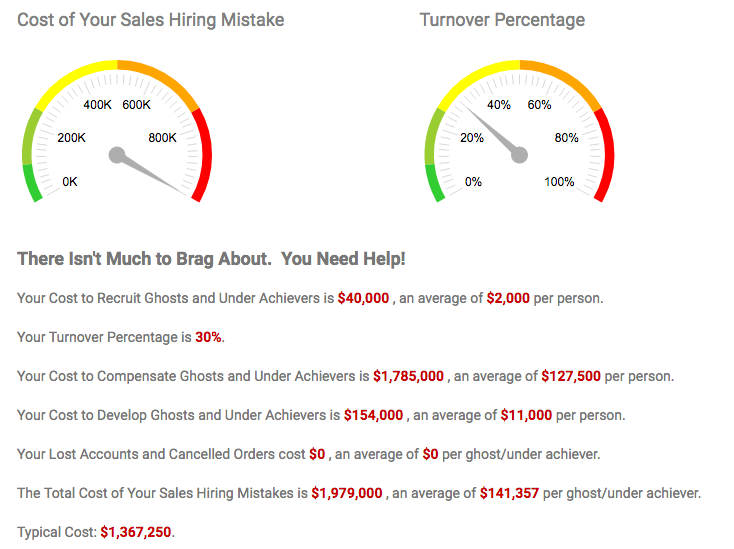When you get to the offer step in your hiring process, it can be tempting to rush ahead and get your candidate contracted. However, this is a critical point in your system that cannot go overlooked.

When was the last time you went to a movie, and the movie didn’t live up to the trailer you saw on your television or online?
It’s like that with recruiting talent as well. In our previous article about the 11 deadly sins of interviewing, I mention that the candidate has one thing in mind – convince you that they are the right person for the job. That is what the trailer is designed to do – convince you that this is a must-see movie. So, what happened to the candidate that seemed to be perfect but isn’t working out in the first six months?
DON’T BLAME THE NEW HIRE!
Before you condemn yourself, the candidate, or your hiring team, you must take a look at the steps and processes in place that are responsible for reviewing the role and your expectations. How do you communicate these details to a candidate as part of your offer and contract steps? Too often, companies that are either hiring lots of people to leverage market opportunities or are desperate to fill a chair are so excited about having a candidate they rush to contract and skip this important step.
Confirming the role and your expectations
- Once you make the offer and the candidate accepts, you want to give them a chance to back out. You ask them, “Are you sure?” They are going to say yes. You tell them it’s going to be hard, and they will say I know or no problem. Then you ask, “Does that mean you’re willing to do everything possible to succeed assuming ethical, legal, and moral standards?” They will say yes.
- Review the role. This includes but is not limited to; hunting for opportunities within your target markets, executing the prospecting plan at 100%, and entering all activity and opportunities into your sales enablement tools. It may also include managing current relationships in the portfolio or book assigned to them, as well as cross-selling into other business units within your organization at agreed-to standards.
- Review expectations when entering opportunities in the CRM and keeping it up to date, attending and participating in all sales meetings, and completing your onboarding training and development program.
- Quarterly reviews of goals, activities, and year-to-date results.
- Participating in all pre-and post-call assigned meetings to discuss opportunity strategies.
- Review consequences for missing targets and execution.
- Review the compensation plan and rewards for success.
- Let them know that all the parts to their onboarding are more than suggestions; they are requirements that you expect to be met at 100%.
- If they miss a target or fall short of an expectation, you will have a discussion. It’s understood that a miss within the onboarding period (whatever length of time you establish) is a strike.
- You take a baseball approach to manage this process – 3 strikes, and you’re out.
- Finally, you ask the question, “Is there anything about this you don’t understand or have questions about?”
- Depending on how that conversation goes, you ask them to repeat back to you what you just heard.
- Ask them how they will make sure they execute this plan and will avoid “strike” conversations.
- Finally, if all goes well, you ask, “Okay, do you still want the job?”
Here is what I assume.
- You read this and said; that’s crazy, and no one does this. I would respond that you are probably right.
- You’ve had problems in the past with candidates not working out. I would say that your contracting and onboarding process is perfectly designed for the results you are getting.
- You feel this is too extreme. I would tell you that it might be and suggest that you find your middle ground. But whatever you do, make sure you confirm that the candidate clearly understands the role and expectations before signing the final employment contract.
- You may not have all the steps in place to carry out this kind of onboarding process. Give us a shout, and we’ll walk you through how to get that done.
Enjoy the movie!









